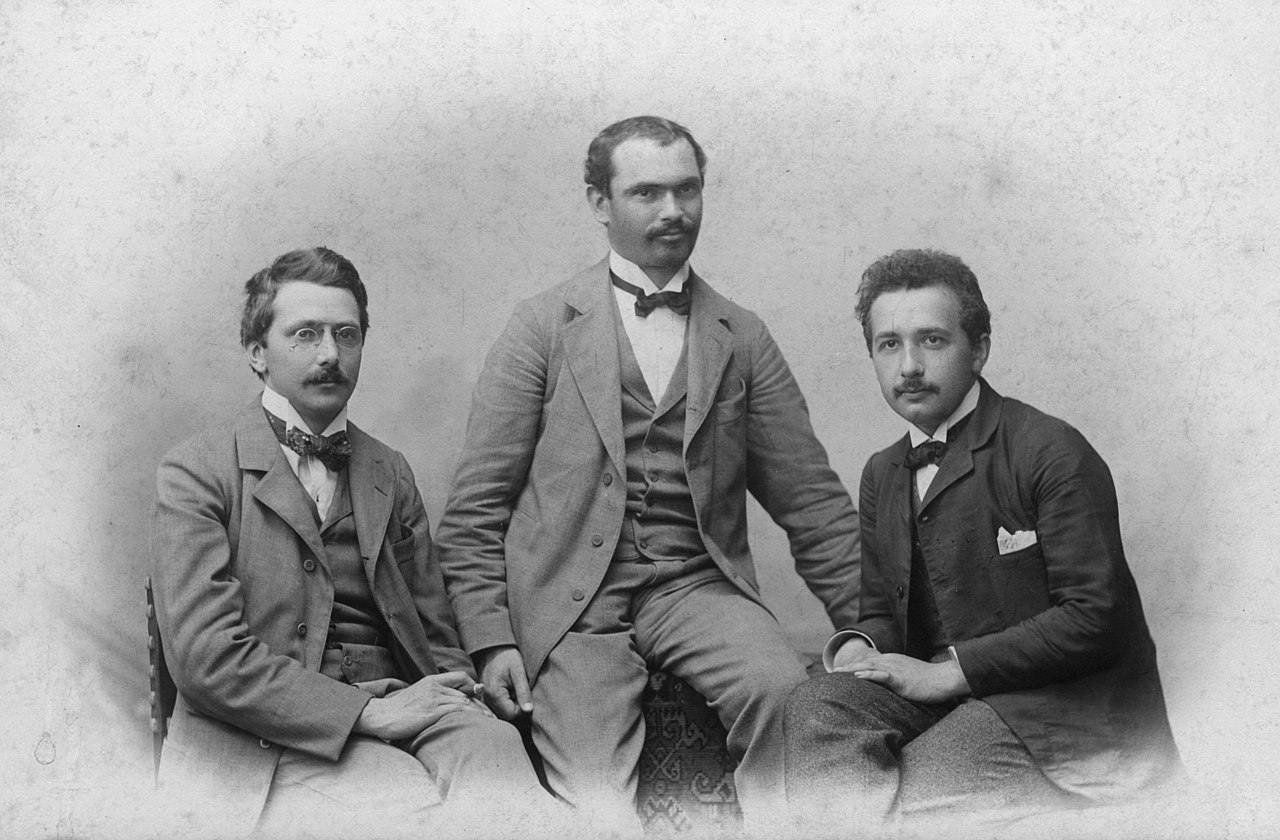Thứ Ba, 12 tháng 9, 2023
Chill time in San Diego, CA, USA.
Thứ Năm, 20 tháng 7, 2023
Einstein wasn’t a “lone genius” after all by Ethan Siegel
Original post: https://bigthink.com/starts-with-a-bang/einstein-lone-genius/

Even the most brilliant mind in history couldn't have achieved all he did without significant help from the minds of others. Einstein, contrary to the popular narrative, wasn't a lone genius, but rather only achieved the successes that he did because of his friends, colleagues, professors, and the larger community of physicists, astronomers, and mathematicians that he was a part of. Without them, including his study-buddy friends Conrad Habicht and Maurice Solovine, pictured alongside him in 1903, his ideas, brilliant as they were, would likely have gone nowhere.
- In the history of science, perhaps no theory was as revolutionary, both immediately and long-term, as Einstein's General Relativity.
- In order to incorporate gravitation into the theory of relativity, an entire new set of developments were required, and Einstein alone was incapable of making them. Instead, it was only through the idea-sharing that took place with the rest of the physics, astronomy, and mathematics community that the final theory came to be.
The secret to becoming an excellent physicist by Ethan Siegel
There may never be another Einstein or another Newton, but we can all learn to utilize their equations under the right physical circumstances. We can become excellent at physics the same way they did: by solving problems.
KEY TAKEAWAYS
When most people think of a great physicist, they think of Einstein, often alongside his famous quote, "Imagination is more important than knowledge." Professional physicists, armchair physicists, and laypersons alike all have wild, imaginative ideas concerning how the world works, but very few ideas are worth serious scrutiny. This isn't because of bias, gatekeepting, close-mindedness, or dogmatism. It's because the expertise you gain in becoming a quality physicist teaches you how to separate out the nonsense.
Thứ Bảy, 8 tháng 7, 2023
How my mentor inspired me to be a confident, curious scientist by Zoe Weiss
Original post: https:/doi.org/10.1126/science.caredit.adj4668
Soon after I took my first steps into a research lab as a bright-eyed, first-year college student, things went awry. I left all the enzymes at room temperature overnight, not knowing they needed to be stored frozen. This setback could have discouraged me from performing solo experiments. But it didn’t, thanks to the kindness of my mentor. Saurja, who was a postdoc, didn’t respond with anger or disappointment after I ruined all the newly ordered enzyme stocks. Instead, he patiently guided me through the principles of enzymatic activity and how they vary with temperature, turning my mistake into a teachable moment.
I went on to work with Saurja for four more years, helping him with his experiments and also carrying out my own. After graduating with plans to pursue research, I reflected on all the ways in which he nurtured my abilities and set me up for success in science. Here are the lessons he taught me.
UNDERSTAND THE BIG PICTURE. In my first few weeks in the lab, I shadowed Saurja, following him around from the gel running rigs to chromatography machines to group meetings—always with a notebook and pen in hand. He struck me as an energetic postdoc whose brain seemed to spin at twice the usual speed, generating outside-the-box questions. He explained how RNA could act like an enzyme if it folds in specific ways, much like proteins do. I had never considered such an idea; it seemed to break the rules I learned in biology classes. I found his enthusiasm and curiosity infectious, and I appreciated that he took the time to explain to me what we were doing and why. By understanding the overarching question, I was better able to plow through the day-to-day disappointments of failed experiments and troubleshoot problems on my own.
